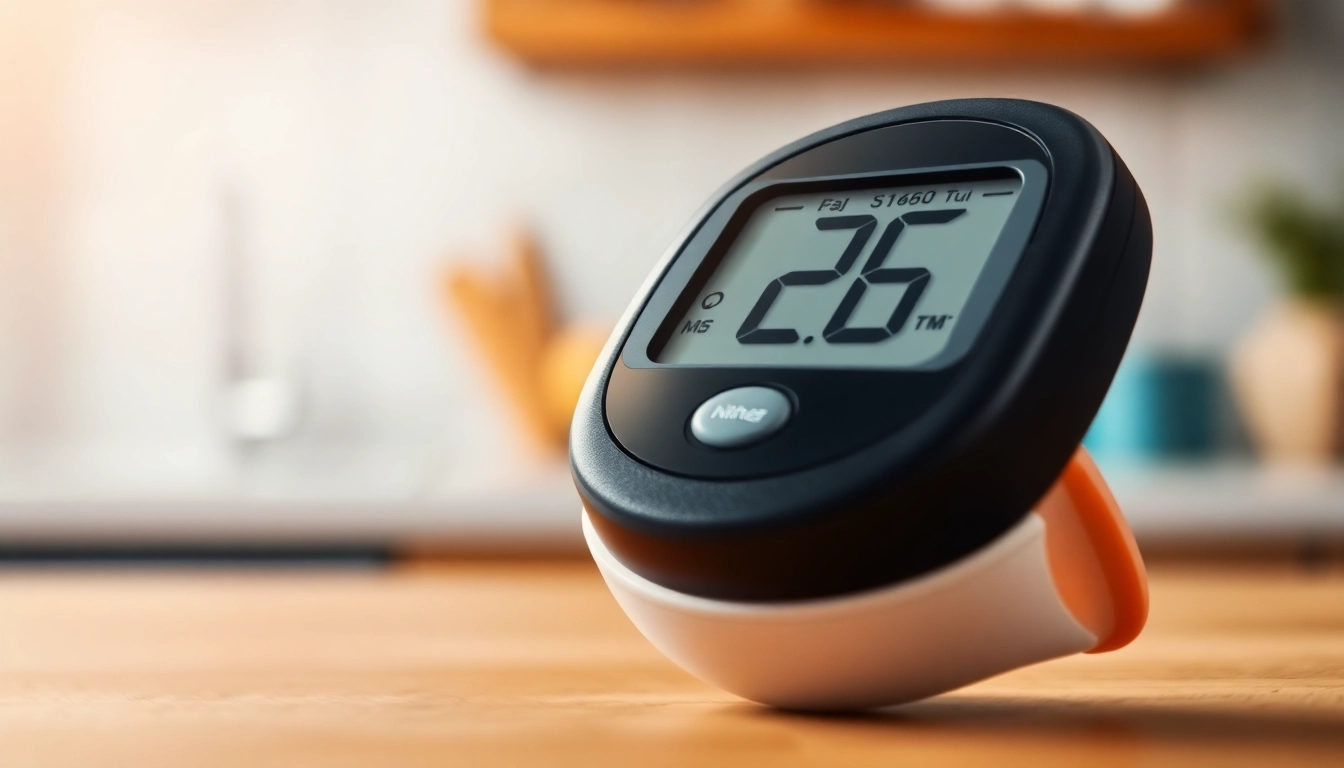What is Bloodsugar and Why It Matters
Blood sugar, also known as blood glucose, refers to the glucose present in your bloodstream. It’s the primary energy source for your body’s cells, and maintaining proper blood sugar levels is critical for overall health. Having too high or too low blood sugar can lead to a variety of health issues, ranging from fatigue and irritability to severe complications like diabetes. To understand why blood sugar management is crucial, it’s important to consider how it functions in your body and its effects on various systems. You can learn more about managing your bloodsugar effectively through dietary choices, lifestyle changes, and medical supervision.
The Science Behind Bloodsugar
Blood sugar levels fluctuate throughout the day based on several factors, largely influenced by what and when we eat. When you consume carbohydrates, they are broken down into glucose, which is then released into the bloodstream. This triggers the pancreas to produce insulin, a hormone that helps cells absorb glucose for energy or store it for later use. Understanding this cycle is essential as it highlights the relationship between diet, insulin production, and blood sugar levels.
How Bloodsugar Levels Affect Your Body
Blood sugar levels impact nearly every aspect of your health. Consistent high blood sugar levels, or hyperglycemia, can lead to long-term complications like nerve damage, kidney disease, and cardiovascular issues. Conversely, low blood sugar levels, or hypoglycemia, can result in symptoms such as dizziness, confusion, and even loss of consciousness. Thus, maintaining a balance is vital for preventing these conditions and ensuring efficient bodily functions.
Common Myths about Bloodsugar
Misconceptions about blood sugar abound, impacting how individuals manage their health. Some common myths include:
- Only diabetics need to monitor their blood sugar: While individuals with diabetes are particularly affected, managing blood sugar is important for everyone.
- Carbohydrates are the enemy: Not all carbs are bad; complex carbohydrates are essential for a balanced diet and provide necessary energy.
- Blood sugar spikes only occur after eating sweets: Blood sugar can rise dramatically after consuming any carbohydrate-rich food, not just sugary snacks.
Normal Bloodsugar Levels: What You Need to Know
Understanding Normal Ranges
Normal blood sugar levels vary depending on the time of testing. Following an overnight fast, a blood sugar level below 100 mg/dL (5.6 mmol/L) is generally considered normal. After eating, levels can rise but should ideally remain below 140 mg/dL (7.8 mmol/L) for non-diabetics. Regular monitoring helps determine your unique baseline and can catch abnormalities early.
How to Measure Bloodsugar Correctly
There are several ways to measure blood sugar, each serving different needs:
- Fingerstick Tests: This involves pricking the finger and using a glucose meter to provide a reading. It is the most common method for self-monitoring.
- Continuous Glucose Monitoring (CGM): These devices provide real-time blood sugar readings throughout the day and can help in making immediate adjustments.
- Laboratory Tests: Blood tests conducted in a clinical setting can offer a more comprehensive view, including HbA1c tests, which measure your average blood sugar levels over the past three months.
What Factors Influence Bloodsugar Levels?
Several elements can impact blood sugar levels, including:
- Diet: The types of food consumed significantly influence blood sugar spikes and dips, with carbohydrates having the most notable effect.
- Physical Activity: Exercise helps lower blood sugar levels by increasing insulin sensitivity and encouraging glucose uptake by muscles.
- Stress: Stress can raise blood sugar levels due to the release of cortisol, a hormone that prompts the liver to release glucose into the bloodstream.
- Medications: Certain medications, including corticosteroids and diuretics, can affect blood sugar levels.
Strategies to Manage Bloodsugar Effectively
Dietary Changes for Optimal Bloodsugar Control
A balanced diet plays a crucial role in blood sugar management. Key strategies include:
- Choose Low Glycemic Index Foods: Foods like whole grains, legumes, nuts, and most fruits have a lower glycemic index, meaning they release glucose slowly, helping to keep levels stable.
- Increase Fiber Intake: Fiber slows digestion and prevents spikes in blood sugar. Incorporating more fruits, vegetables, and whole grains is beneficial.
- Portion Control: Monitoring portion sizes can help prevent overeating and subsequent blood sugar spikes.
- Limit Processed Carbs: Cutting down on sugary snacks and refined carbs can help maintain healthier blood sugar levels.
Exercise Recommendations to Regulate Bloodsugar
Regular physical activity is vital for blood sugar control. Recommendations are as follows:
- Engage in Aerobic Exercise: Activities like walking, jogging, cycling, or swimming for at least 150 minutes per week help maintain overall health and keep blood sugar levels stable.
- Incorporate Strength Training: Resistance training exercises build muscle mass, which can improve insulin sensitivity and help regulate blood sugar levels.
- Be Consistent: Aim for regularity in your workout routine to achieve sustained benefits over time.
Stress Management Techniques for Bloodsugar Control
Effective stress management is crucial in avoiding spikes in blood sugar levels. Techniques include:
- Meditation and Mindfulness: Practices like meditation can reduce stress and improve overall emotional well-being.
- Regular Sleep: Aiming for 7-9 hours of quality sleep each night can improve stress management and overall insulin sensitivity.
- Engage in Hobbies: Allocating time for leisure and enjoyable activities can reduce stress and help maintain balanced emotions.
Signs of Abnormal Bloodsugar Levels
Symptoms of High Bloodsugar
Common signs indicating elevated blood sugar levels include:
- Frequent urination
- Increased thirst
- Blurred vision
- Fatigue and weakness
Signs of Low Bloodsugar
Recognizing low blood sugar levels is equally important. Symptoms may present as:
- Dizziness or light-headedness
- Shakiness or trembling
- Increased hunger
- Pale skin
When to Seek Medical Attention for Bloodsugar Issues
If you experience any of the severe symptoms mentioned above, especially loss of consciousness, seek immediate medical attention. Regular monitoring can help avoid emergencies, but acknowledging when blood sugar levels are critically high or low is equally vital.
Latest Research and Innovations in Bloodsugar Management
Advancements in Monitoring Technology
Technological advancements have transformed blood sugar management. Continuous glucose monitors (CGMs) allow for real-time monitoring, enabling individuals to track their levels more accurately and make informed dietary and lifestyle choices. New devices and mobile apps are emerging, offering integrated solutions for better management.
New Dietary Recommendations for Bloodsugar Control
Research continues to evolve, providing updated dietary guidelines. The focus has shifted towards personalized nutrition, recognizing that meal planning must be individualized based on specific health needs, preferences, and lifestyles. Currently, there is a greater emphasis on incorporating anti-inflammatory foods and micro-nutrients that support metabolic health.
Future Trends in Diabetes Care and Bloodsugar Management
The future of diabetes care and blood sugar management is promising with ongoing research into potential medications and therapies, including artificial pancreas systems and more sophisticated insulin delivery methods. Education around self-management is also expected to improve, equipping individuals with better tools to manage their blood sugar effectively.



